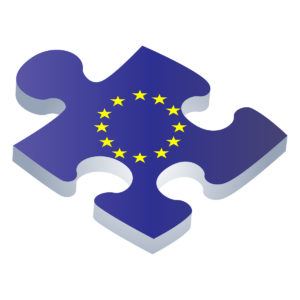Four million Europeans seem to have signed a petition launched by Save the Internet opposing the controversial “upload filter” conditions in the European Union’s updated Copyright Directive — pitting copyright concerns against fears of censorship and anti-competitive market conditions.
But there’s also concern that the petition-signers may not all be European.
In September, the EU updated its Copyright Directive to add stronger protections for content creators — like artists, musicians, writers and especially newspapers.
The Copyright Directive (once finalized) will force big tech platforms like Facebook, Google and YouTube to pay content creators for linking to or providing samples of their content, and it also mandates platforms regularly scan for and remove any content that violates copyright — in other words, employ an “upload filter,” which many experts believe sets a precedent for censorship.
Silicon Valley vehemently opposed the changes to the directive, and experts have fallen on both sides of the issue: while it’s important that content creators are properly compensated (they’re often not fairly compensated in the current internet ecosystem), it’s also important to balance competition between tech platforms and not set a precedent for censorship.
The Electronic Frontier Foundation (EFF) — which supports Europeans’ grassroots effort to oppose the “upload filter” mandate — argues upload filters are “incredibly expensive to create” and would force out small to medium-sized tech platforms that don’t have the resources of Facebook and Google to comply.
“Filters don’t work, they cost a lot, they underblock, they overblock, they are ripe for abuse,” the EFF’s Special Advisor Cory Doctorow wrote in a Nov. 30 blog post.
Even YouTube’s own efforts to scan for and take down copyrighted material don’t work. Furthermore, Doctorow argues, the mandate creates liability for tech platforms, which undermines the idea of a free and open internet.
“What happens if you strip liability protections from the internet? It means that services are now legally responsible for everything on their site,” Doctorow wrote. “Consider a photo-sharing site where millions of photos are posted every hour. There are not enough lawyers — let alone copyright lawyers — let alone copyright lawyers who specialize in photography — alive today to review all those photos before they are permitted to appear online.”
Furthermore, the EFF argues the upload filter mandate will only concentrate market power between a few content sharing platforms — like Facebook and Google — force out the smaller platforms and result in more leverage for Facebook and Google to pay creators less for their content.
Roslyn Layton, the American Enterprise Institute’s (AEI) visiting fellow specializing in tech policy issues, said it isn’t so simple. For one, the Copyright Directive attempts to streamline a patchwork of different European countries’ copyright laws and enforce copyright protections for creators — and the status quo only benefits the tech platforms.
Secondly, this is the only legislative effort that seeks to fairly compensate content creators — and the legislative language is purposefully vague to avoid censorship problems.
But more importantly, she said, she’s not sure how legitimate this petition is, since anyone can sign it and it may not really represent European interests.
Activist groups can ask anyone to sign the petition, and if you sign a petition on one issue, they’re likely to ping you to sign another one — for any country, no matter where you’re from.
“It’s like ‘oh well you like net neutrality, you’ll probably like this issue, please sign this,'” Layton said. “[For this issue] there’s no way to ensure they’re all Europeans.”
When a similar petition regarding net neutrality in the EU circulated in 2015, she said, one third of those who signed the petition were not European.
“It’s part of a world movement called transnational activism, where you’re using social and digital tools to change the norm in different countries,” she said. “Social networks and computer networks are used to create political change. Ostensibly you want to have people who are voters or constituents within the particular country or region [signing the petition]. It’s the same thing with the Russian hacking. You use digital tools to create the appearance of a grassroots movement.”
Not only that, but those who sign online petitions usually represent limited demographics. The elderly and the poor, who may not have consistent online access and often do not prioritize tech policy issues above more pertinent issues like jobs and healthcare, are severely underrepresented.
Those who end up signing these petitions are “the people who are more likely to be online at any given time — usually men,” Layton said. “When you’re trying to have a democratic process, you want to make sure you have an accurate representation of the people. The rich, their voices are heard more than the poor.”

